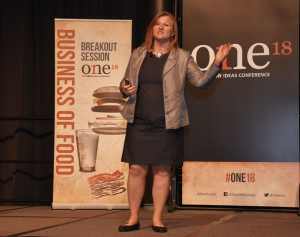 The Canadian Centre for Food Integrity exists to help the food system earn the trust of consumers. Its U.S. counterpart has been working towards the same thing since 2007.
The Canadian Centre for Food Integrity exists to help the food system earn the trust of consumers. Its U.S. counterpart has been working towards the same thing since 2007.
“To really earn trust, it has to start by doing the right thing – having trusted assurance systems – and then communicating. And you can’t do one pillar on its own without the other,” said Crystal McKay, president of the Canadian Centre for Food Integrity. “So, I think where we need to get to in this to really move the bar on trust is showing our hearts first and facts second. The connecting with shared values. If we think about something like environment, for example, or animal welfare, no one cares more about that than farmers. But the public hasn’t heard that yet.”
McKay said 93 percent of the population in Canada and the United States knows little to nothing about farming, and it’s difficult to get public attention or engagement until there is a problem. Although agriculture is a technical industry, farmers and other food stakeholders cannot educate their way to public trust. McKay said the food industry needs to collaborate from farmer to processor to retailer and connect with the emotional side of the consumer first, then following with science and factual information. She said the time has never been better to have a conversation about food and agriculture, but noted it needs to start with listening.
McKay said it’s a mindset shift to consider the food business no matter what part of the supply chain one is in. She called it a whole food system business challenge that requires working together, as public trust should be viewed as a base for growth and innovation.
Listen here for Chuck’s interview with Crystal: Interview with Crystal McKay, Canadian Center for Food Integrity
